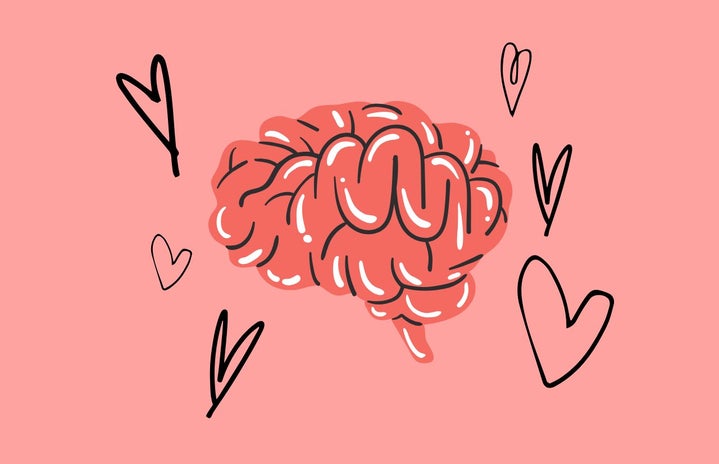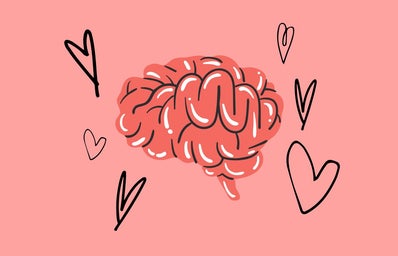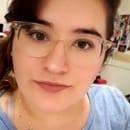“Suicide prevention month”
My heart clenches as I hear those words leaving the president’s mouth and I am suddenly very glad I had opted out of showing my video feed to the rest of our Her Campus chapter. Of course, I want to write something about it, I’ve written about my experiences before. But it’s that moment of shock and awe when the topic of suicide comes up in conversation.
It’s one of those things that we just don’t talk about. Like my mom’s extended hospital stays. The cops that would show up at our doorstep informing us that our mom was on her way to Austin State Hospital. We don’t talk about the long hot summer days when I went from swim team practice to the waiting room of the psych ward, looking at the small cut on my knee that I’d got from pulling myself out of the water at the pool’s edge and scraping it across the screw that held the grate in place. We don’t talk about the families that are ripped apart and put back together by suicide.
I feel like a bystander who was involved in a terrible crime, that no one wants to hear about. Too bloody. Too messy. Too personal.
I lost the one person I always knew loved me.
Now let me explain that. My father who chose a passive if a not absent role in my life. He would have rather passed me some money and told me to get myself something than spent an hour having a conversation with me building a relationship. All my grandparents loved me, in their own way. But in a sea of grandkids, I was just one, and not a needy one by nature. I was often forgotten. A relative once referred to me as “the lost one”, as if I hailed from Neverland and lived with Peter Pan. And my siblings were of course wrapped up in their own problems.
My mom always had time. She was the ear I poured my heart out to. She was the one I tried hardest to make laugh. She greeted me with a hug and never forgot to say, “I love you” before leaving.
Over the summer I found an audio recording of one of her therapy sessions. She said I was one of her greatest fears. She feared how I would take her eventual death. She knew that one day she’d get lucky and succeed in ending her own life. She feared how I might blame myself.
I remember how in the months after her death and the following year, how I’d gone over that day in my mind over and over again. I was the last of my family to see my mom alive. She dropped me off at the Greyhound stop, she hugged me one last time. I shouldn’t have gotten on that bus, I shouldn’t have let go. I should have picked up the phone when her friends called me panicked, but instead, I looked out the window and let the world pass by.
I trusted that everything would be okay. And I went back to school, my roommate picked me up at the bus station at the edge of town.
I got the call later. The call that ended my whole world.
It was raining.
“Overdosed on her insulin.’’
I walked in the rain so no one could see me crying.
“Braindead”
My mom was dying and the whole world acted as if the sun hadn’t disappeared.
“Coma”
I couldn’t feel the cold. I couldn’t feel anything.
“Life support”
I could go on about the warning signs: Sudden changes in mood, lack of interest in things they used to enjoy, withdrawn from personal relationships, family and friends.
I could tell you that the most at risk are adolescents, teens, and college students. I could stress the importance of having a support system and self-care, and checking in on your family.
But I also know that sometimes, it’s a 44-year-old woman who sent the last weekend before she killed herself surrounded by her family. Sometimes it’s the end of a long battle of mental illness.
“The sad thing is suicide doesn’t end the pain. It just passes it on to someone else.”
-James Kirkup.
I’m now the keeper of her pain.



